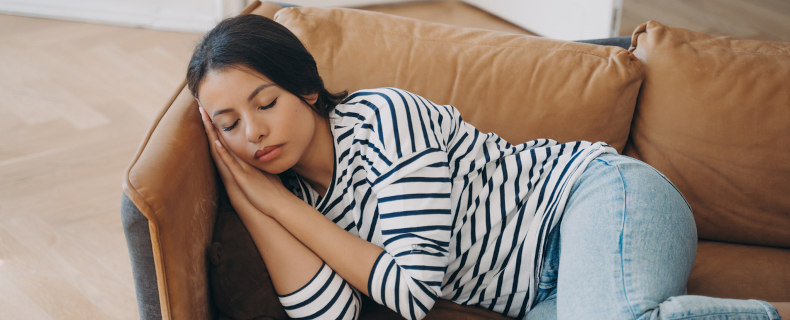Okemos, Lansing, East Lansing MI
Sleep apnea is a condition which causes the breathing to be greatly reduced and even temporarily stopped while sleeping. This halting of breath – “apnea” comes from the Greek words for “no breath” – compels the body to wake briefly to restore it. It is not exactly widespread, but it is not rare, either; one estimate suggests that one American in fifteen has some form of sleep apnea.
There are essentially three types of sleep apnea. The most common is Obstructive Sleep Apnea, which, as its name implies, is sleep apnea caused by obstruction; specifically, obstruction or blocking of the airway.
It can occur in anyone, even children, but it is more likely to be found in:
- overweight and obese persons
- older persons
- persons younger than 50 years old, in men, boys, and those designated as male at birth
- people of Asian, Hispanic, or African-American descent
There is also Central Sleep Apnea, which is caused by a miscommunication between the brain and the muscles responsible for breathing. It appears in about 1% of the American population. Central Sleep Apnea typically happens because of an injury, a stroke, or the consistent use of opioids for pain management.
Finally, there is Complex Sleep Apnea, which is a combination of obstructive and central sleep apnea.
Sleep apnea: sleep disruption
Sleep apnea essentially disturbs sleep because it forces the body to rouse itself to ensure that breathing resumes. This waking often does not last long (usually a matter of seconds), and is frequently so brief that the sleeper is not brought to full consciousness. For this reason, in can often go unnoticed.
Nevertheless, the body is in fact affected by the disruptions, in no small part because they are frequent; in severe cases, they can happen over thirty times an hour. Quality and quantity of sleep therefore suffers, and this is why the most common consequence of sleep apnea is feeling tired the next day.
Sleep apnea: feeling tired
First of all, the person afflicted by sleep apnea will feel unrested. As is commonly known, sleep occurs in stages. Scientists differ as to whether there are four or five of these, but what is agreed upon is that the stage that is most physically restorative is the “deep sleep” entered into just before Rapid Eye Movement (REM) sleep. Deep sleep is characterized by slow, long brainwaves (Delta waves), relaxed muscles, and greatly slowed breathing and heart rate.
Sleep apnea breaks in upon this by shaking the body out of this restful sleep. The body therefore has less of the replenishment it needs, making the sufferer feel physically depleted.
Sleep apnea: feeling sleepy
Additionally, persons with sleep apnea tend to feel positively drowsy. The main reason for this has to do with a brain chemical called adenosine. Adenosine essentially brings about the sleepy sensation that allows for sleep to occur. During deep sleep, adenosine is slowly reduced, which means the body is less resistant to being roused.
However, sleep apnea reduces deep sleep in the manner just mentioned. Not only that, but sleep apnea produces a condition called hypoxia, which is a reduced amount of oxygen in the bloodstream. This also impedes the reduction of adenosine.
As a consequence, there is more adenosine than is typical. This not only makes it harder to wake up, but since adenosine naturally increases during waking hours, it can cause the body to desire sleep and hence lead to drowsiness.
Better rest through treatment
Although the outcomes of sleep apnea are certainly noticeable, those who have sleep apnea may nevertheless not know it. This is especially the case because snoring, which always accompanies sleep apnea, may also occur in persons who do not have it, and drowsiness may be explained in other ways. Sleep apnea may therefore be allowed to be dismissed.
However, if a person suspects he or she might have sleep apnea, a visit to a doctor may be in order. The doctor, in turn, might recommend a sleep study. Once sleep apnea is confirmed, treatment may be sought. There are a variety of ways whereby sleep apnea may be treated, including lifestyle changes such as weight loss; surgery; an oral appliance; and use of a Continuous Positive Airway Pressure (CPAP) machine.
People who find themselves tired and sleepy even after a “good night’s sleep” might consider having a physician check for sleep apnea. Treatment for it will almost certainly result in better and more restful sleep.
Getting better sleep
Insufficient sleep is a rising concern among American adults, but it need not be a permanent condition. Changes in behavior, and diagnosing and treating conditions like Sleep Apnea, can do wonders to ensure a good night’s rest.
Sleep Apnea Treatment in Okemos, Lansing, and East Lansing, MI
To find out more about sleep apnea and possible treatments or to schedule a consultation, please call Tenaglia Smiles at (517) 940-8684 or contact us online to request an appointment today.

